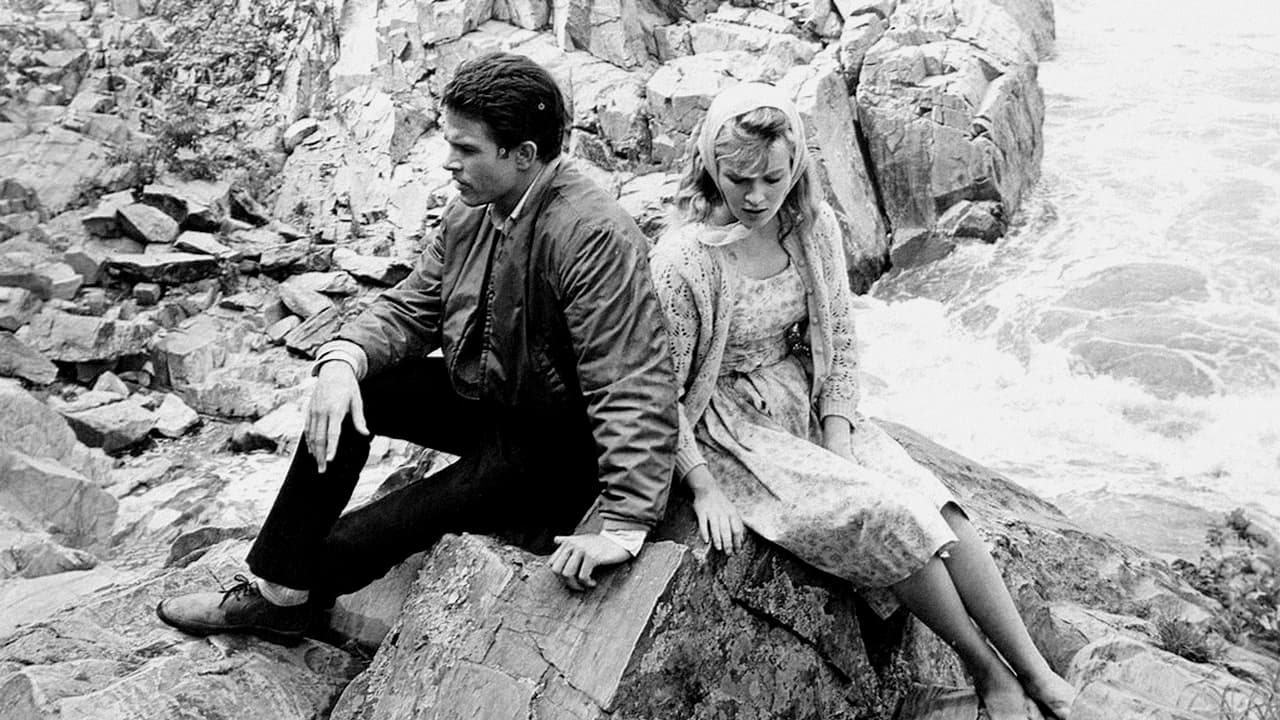



The greatest movie ever made..!
Don't listen to the Hype. It's awful
Awesome Movie
Actress is magnificent and exudes a hypnotic screen presence in this affecting drama.
View MoreLilith has Jean Seberg in the title role and she's quite beautiful and fetching. She also comes from rich parents who have put her in a country club of an asylum with a lot of other rich dingbats. And this is where newly hired therapist Warren Beatty is drawn into an infatuation with her that by rights should get him terminated from the establishment.Lilith is a beautifully photographed film with Jean Seberg never looking more lovely and seductive on screen. This was Robert Rossen's last film and he wanted it to be a good one. Unfortunately I think the viewer will leave asking what was the point of all this.What was daring at the time was the fact that Seberg was bisexual and the reaction of Beatty catching Seberg enjoying a romp in the hay with Jessica Walter was typical for 1964. Her essential amorality both repels and attracts him at once, Beatty does a good job in showing those opposite emotions registering at once.A couple of Oscar winners in the future Gene Hackman and Olympe Dukakis have small roles in Lilith. Kim Hunter plays the asylum director and Peter Fonda plays a most insecure patient whom Seberg toys with.But I have to confess I didn't get a whole lot of what Lilith was all about. What I came away with it's lucky the rich have such an expensive facility to pamper their neuroses.
View MoreComing on the heels of Splendor in the Grass and All Fall Down, one can surmise the reasons behind Warren Beatty's decision to play the male lead in Lilith. In those two earlier films, he had played brooding and laconic young men, a group to which Vincent Bruce belongs. Beatty had also previously played a callous gigolo (to great effect) opposite Vivien Leigh in The Roman Spring of Mrs. Stone. Lilith would provide him with the opportunity to reprise his earlier portrayals, with the added shades of a seemingly compassionate, diligent young man.Had Lilith required Beatty to exude only these facets of Vincent Bruce, his performance would have been more than adequate; but the character has additional complexities which Beatty never registers well. For that reason, I believe he is miscast in this film. On the other hand, Jean Seberg truly shines as Lilith Arthur, the disturbed young woman. Her expressions in the close-ups disclose her unhinged state of mind. Seberg's performance could profitably be used in acting classes everywhere. Anne Meacham, Peter Fonda, Kim Hunter, and Jessica Walter are also very good, but Gene Hackman deserves a special mention for a brief but indelible appearance.Beyond the performances, the film is a languorous, plodding vehicle, sometimes too painful to watch, as is the scene between Peter Fonda and Warren Beatty in the garden, toward the end. Beatty's disengaging comportment invalidates any sympathy the spectator might feel for him in the end, unlike, say, Shutter Island, for which this film might have served as inspiration.
View MoreThis is an unusual film that has a young Warren Beatty playing Vincent, a Korean War veteran, who is taken on as an occupational therapist at a mental institution for wealthy patients. If for no other reason this is worth watching for its improbable and disparate cast: besides Beatty there is Jean Seaberg as a patient (Lilith), Kim Hunter as a doctor on the institution's staff, Peter Fonda as the introverted patient Steve, and Gene Hackman as the husband of one of Vincent's previous flames.A good percentage of the scenes are filmed in extreme close-up, particularly the ones between Beatty and Seberg. The black-and-white photography is well suited for this, since facial expressions carry more force in black-and-white.It's hard to pin down what the problems are that the patients have. Perhaps that is the nature of mental illness, but the patient's peculiarities struck me as a bit exaggerated. There are sexual undertones running throughout (well, in the case of Beatty and Seberg more than undertones). Steve fancies Lilith and makes timid attempts to attract her and convinces himself, wrongly, that there is hope there. Vincent's presence seems to release a sort of pan-sexuality in Lilith. Not only does she take up with him, but she also has a lesbian connection with another patient and displays an ill-defined affinity for pre-pubescent boys. Waterfalls and running water turn Lilith on and there is a scene where she looks at her reflection in a lake and kisses the image, another indication of sexuality running wild I guess.Vincent himself is no model of sanity. There is a connection between his feelings for his dead mother and those for Lilith, whose appearance bears a striking resemblance to his mother. Beyond that, Vincent has a lot of unresolved issues that are only hinted at. Precise character analysis is not what this movie is about and you are left wondering just what it *is* about. One thing for sure, dealing with sexuality in a mental institution is not an exact science.There is a lengthy sequence where Vincent and Lilith go to a fair and Vincent enters a jousting contest where horseback riders use their lances to pluck small rings from suspended metal mounts. This has to be one of the oddest sequences in all of moviedom.When it was over, my reaction was (and is), "I'm not sure what to make of this movie."
View MoreO. K., very good b. and w. cinematography, and a good acting by Beattty, but no so much of Seberg. She was very good in "Bonjour Tristesse", for instance, but not here. The blame: ¿director?, ¿awful dialogue? Metaphors and symbols are obvious: Seberg playing the flute is an "enchantress", the grid in the window is the "spider web" where Beatty get trapped, Beatty was in love with his mother and Seberg was in love with her brother, the doctor and Kim Hunter are his actual father and mother, the water is the death, the dirty water is the sin (Seberg and the lesbian in the cottage), the ubiquous lesbian woman is the evil, Beatty entering in the woods (first shots of the film) is descending into the hell, Hackman and Harper "are not happy in their marriage", etc., etc. ¿Rossen's remorse by his behaviour in front of the Mc Carthy commission?In any case, ¡too much!
View More